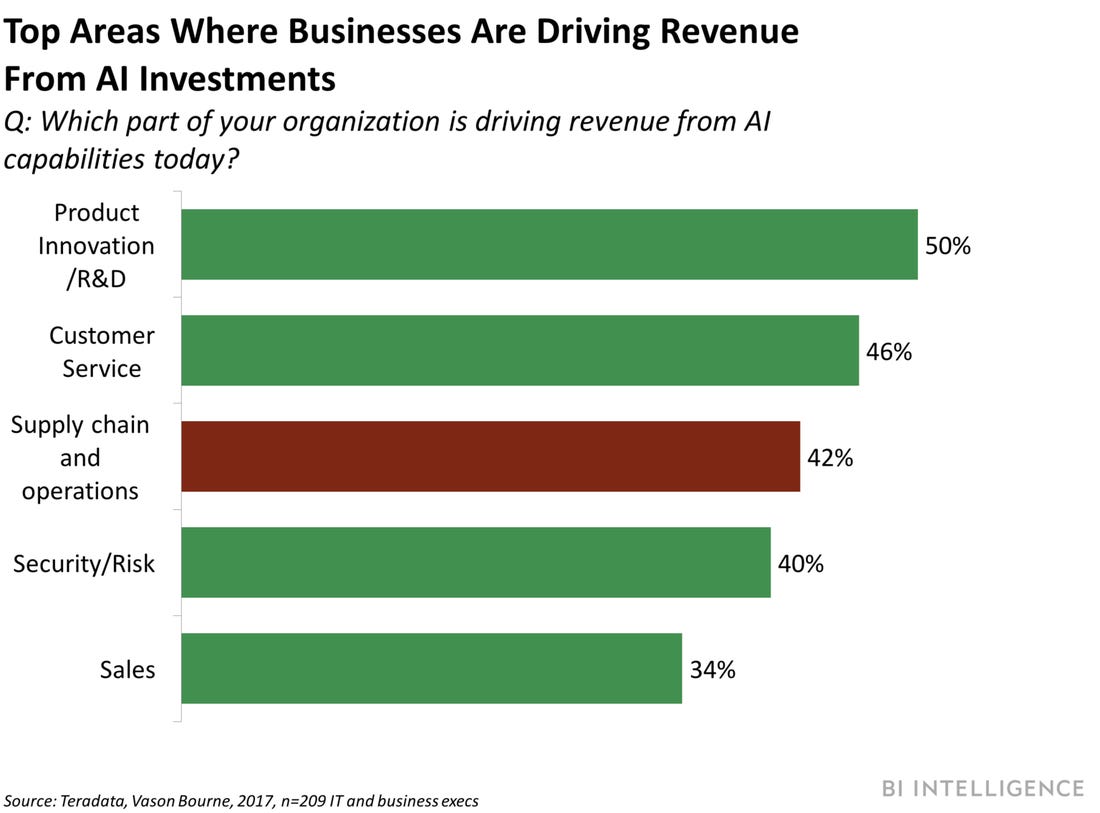As digitization hits the ground running at global logistics companies, artificial intelligence (AI) is trailing the footsteps to disrupt the industry. To stay competitive and agile, global logistics giants including DHL are capitalizing on AI’s machine learning technologies for automating critical business processes efficiently. As a well-positioned provider of AI development services, Oodles AI explores the practical applications of artificial intelligence in logistics.
Role of Artificial Intelligence in Logistics
With AI becoming more accessible, logistics leaders are exploring AI’s potential for back operations and customer-facing activities to reduce costs and improve productivity. Today, logistics companies are eyeing AI capabilities for automating routine tasks, extracting data and insights, and interacting with customers significantly.
Acknowledging AI’s capabilities in the collaborated report, “Artificial Intelligence in Logistics”, IBM’s Global Industry Leader for Rail, Freight and Logistics Keith W. Dierkx and DHL’s Senior Vice President for Strategy, Marketing, and Innovation Matthias Heutger write-
“Looking ahead, we believe AI has the opportunity to significantly augment current activities in logistics from end to end. AI will fundamentally extend human expertise in terms of reach, quality, and velocity by eliminating mundane and routine work, allowing logistics workforces around the world to focus on more meaningful and impactful work.”
Interestingly, the network-based nature of the logistics industry offers a natural framework for deploying and scaling AI. It has pushed the journey of artificial intelligence in logistics beyond routine tasks such as sorting letters or parcels. Algorithmic advancements have led logistics companies to adopt machine learning development services across warehouses, customer desks, and inventory management.

A Business Insider’s report suggests that early AI adopters in transportation and logistics already enjoy profit margins greater than 5%.
The transformation is possible thanks to AI’s data processing capabilities and to the supply chains generating rich datasets every day. It triggers AI technologies to provide real-time visibility and analysis by training ML models with supply chain data. AI-driven logistics optimization enables companies to solve complex cost and delivery constraints by utilizing in-depth insights and analytics.
A visualization of AI’s key developments in logistics is demonstrated in Mckinsey’s report, Smartening up with Artificial Intelligence (AI)–
Apparently, AI’s benefits for logistics encapsulates reduced inventory risk, route optimization, savings in last-mile costs, and more as we find in the applications ahead.
Artificial Intelligence in Logistics | Applications and Opportunities
1) Robotic Process Automation
For AI to flourish in logistics, it should pivot around human-machine collaborations for major back-office operations including repetitive data entry. Here, the combination of Robotic Process Automation (RPA) and AI can automate and streamline routine business tasks to cut corners significantly.
RPA at logistics companies has already begun to replace clerical labor using software tools that can be easily integrated into business IT systems. Moving ahead, RPA can automate repetitive logistics tasks such as-
a) Collecting and processing data files
b) Shipment scheduling and tracking
c) Order processing and sending confirmation emails
Read miore: Role of Artificial Intelligence in Logistics
















